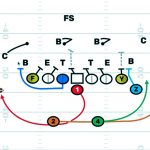Navigating the financial landscape of professional sports, Josh Brown’s earnings as a defenseman for the Arizona Coyotes reflect a complex interplay of factors.
His current salary of $1.3 million for the 2023–24 season is a testament to his experience and on-ice contributions.
With an estimated career earnings of $5.157 million, Brown’s financial journey encompasses transitions between teams and strategic moves in free agency.
The elusive nature of his net worth, ranging from $13 million to $25 million in various estimates, underscores the challenges of assessing a player’s wealth.
In this dynamic arena, Brown’s earnings mirror the intricate dance between individual prowess, team dynamics, and the financial pulse of the NHL.
How Much Does Josh Brown Make?
Josh Brown, a Canadian professional ice hockey player currently with the Arizona Coyotes, has had a notable career in the NHL.
Let’s explore key aspects of his journey, including his early years, junior hockey success, and progression to the professional league.
Early Years and Junior Hockey Success
Born on January 21, 1994, in London, Ontario, Brown’s hockey journey commenced with the London Jr. Knights in the ALLIANCE U16 league.
His leadership skills emerged during his tenure with the Oshawa Generals in the Ontario Hockey League (OHL), where he played from 2011 to 2015. Notably, Brown captained the Generals and played a pivotal role in their Memorial Cup victory in 2015.
NHL Entry and Debut
The Florida Panthers recognized Brown’s potential, drafting him in the sixth round of the 2013 NHL Entry Draft.
After making his professional debut with the Portland Pirates in the AHL, Brown earned his spot in the NHL, making his debut with the Panthers on December 15, 2018.
His inaugural season saw him play 37 games, culminating with his first NHL goal against the Montreal Canadiens.
Trades and Team Transitions
Brown’s journey saw him traded to the Ottawa Senators in October 2020, and later to the Boston Bruins in April 2021. These transitions showcased his adaptability and value as a player.
Despite limited games, he continued to contribute to his team’s defensive strategies.
Free Agency and Arizona Coyotes
July 13, 2022, marked a new chapter for Brown as he entered unrestricted free agency, eventually signing a two-year, $2.55 million contract with the Arizona Coyotes. His move to the Coyotes underscores his continued relevance in the NHL.
Contract Details and Career Earnings
For the 2023–24 season, Brown’s salary is $1.3 million, with a cap hit of $1.275 million.
Across his career, he has signed four contracts totaling $8.275 million, accumulating estimated career earnings of $5.157 million. Brown’s financial success is evident, with a net worth of $6.3 million.
Playing Style and Contribution
As a right-handed defenseman known for his physicality and defensive prowess, Brown employs his size and reach to fortify his team’s defensive zone. While not primarily an offensive player, he has showcased versatility with occasional goals and assists.
His role as a reliable penalty killer and his leadership qualities make him a valuable asset on and off the ice.
Factors Contributing to Josh Brown’s Salary

Josh Brown’s salary is influenced by various factors that collectively contribute to determining his compensation as a professional ice hockey player. Here are key factors that play a role in determining his salary:
NHL Experience and Skill Level
Brown’s experience in the NHL and his skill level as a defenseman contribute significantly to his salary. Players with a proven track record of performance and skill command higher salaries.
Positional Demand
The demand for defensemen in the NHL affects their market value. If there is a high demand for skilled defensemen, it can drive up salaries for players in that position.
Performance Metrics
Brown’s individual performance metrics, including defensive statistics, plus/minus rating, and contributions to the team’s overall success, can influence the evaluation of his worth and, subsequently, his salary.
Team’s Financial Situation
The financial health of the Arizona Coyotes, as well as their salary cap situation, plays a crucial role. If the team has the financial capacity and flexibility within the salary cap, it may be able to offer higher salaries to key players.
Contract Length and Structure
The length and structure of Brown’s contract are essential factors. Longer-term contracts or deals with performance bonuses may impact the overall compensation package.
Market Trends and Comparable Contracts
The NHL salary landscape is influenced by market trends and comparable contracts. Negotiations often take into account what other players in similar roles and with similar skill sets are earning.
Negotiation Skills and Representation
The negotiation skills of Brown’s agent and the representation he has can impact the outcome of salary negotiations. A skilled negotiator can secure favorable terms for the player.
Team’s Performance and Expectations
The overall performance of the Arizona Coyotes, both in terms of recent achievements and future expectations, can influence the team’s willingness to invest in key players like Josh Brown.
Marketability and Off-Ice Contributions
Brown’s marketability, including endorsements, community involvement, and other off-ice contributions, can add value to his overall compensation package.
League-Wide Trends and Collective Bargaining Agreement
Changes in the NHL’s Collective Bargaining Agreement (CBA) and league-wide trends in salary structures can impact player salaries. The terms outlined in the CBA provide a framework for salary negotiations.
How the Team’s Financial Situation or Success May Impact His Salary?

The financial situation and success of a professional sports team can have a direct impact on player salaries, including that of Josh Brown.
Several factors come into play, influencing the team’s ability to allocate funds to player contracts and, consequently, the financial rewards for individual players.
Team Performance and Revenue Generation:
Success on the Ice
A team’s on-ice success, including playoff appearances and championships, often correlates with increased revenue through ticket sales, merchandise, and heightened fan engagement. A financially successful team is better positioned to offer competitive salaries to its players.
Broadcasting and Media Deals
Teams with strong performance often negotiate lucrative broadcasting and media deals. The financial windfall from these agreements contributes to the team’s overall revenue, providing additional resources for player salaries.
Salary Cap Constraints
Professional sports leagues, including the National Hockey League (NHL), typically implement salary caps to maintain competitive balance among teams.
The team’s financial situation directly influences its ability to operate within this cap. A team with financial constraints may face challenges in retaining or acquiring high-profile players.
Cap Space Availability
A team’s financial success can create cap space flexibility. This enables the team to make strategic moves, such as signing key players or making impactful trades. The availability of cap space influences the negotiation power of both the team and its players.
Franchise Stability
A financially stable franchise is more likely to make long-term commitments to players, offering extended contracts and competitive salaries. This stability fosters a positive environment for player development and retention.
Strategic Planning and Investment
Teams with robust financial foundations can strategically invest in player development, training facilities, and scouting.
These investments contribute to sustained success and may attract top talent, enhancing the overall competitiveness of the team.
Negotiation Leverage
A team’s financial success can influence the negotiation dynamics between the organization and individual players. Successful teams may have greater leverage in contract negotiations, potentially allowing them to secure favorable terms.
Performance Incentives and Bonuses
Financially successful teams may incorporate performance incentives and bonuses into player contracts. These additional rewards provide players with opportunities to boost their earnings based on individual and team achievements.
FAQS
What is Josh Brown’s current salary with the Arizona Coyotes?
Josh Brown’s current salary with the Arizona Coyotes for the 2023–24 season is $1.3 million.
What is the cap hit associated with Josh Brown’s contract for the 2023–24 season?
The cap hit for Josh Brown’s contract with the Arizona Coyotes in the 2023–24 season is $1.275 million.
How much has Josh Brown earned over his entire NHL career?
Over his NHL career, Josh Brown has accumulated an estimated $5.157 million in career earnings.
What was the value of Josh Brown’s contract when he signed with the Arizona Coyotes in free agency?
In free agency, Josh Brown signed a two-year contract with the Arizona Coyotes, valued at $2.55 million.
What is Josh Brown’s current net worth in the context of his hockey career earnings?
Josh Brown’s net worth, as per HockeyZonePlus.com, is estimated to be $6.3 million, ranking him #1604 in NHL/hockey career earnings.
To Recap
Josh Brown’s financial profile is a product of a multifaceted career in professional ice hockey.
His current salary of $1.3 million with the Arizona Coyotes for the 2023–24 season is reflective of his experience, defensive skills, and the team’s financial dynamics.
With an estimated career earnings of $5.157 million, Brown’s net worth, ranging between $13 million and $25 million by varying estimates, underscores the intricacies of assessing a public figure’s wealth.
As he continues to contribute on the ice and navigate the evolving landscape of professional hockey, Brown’s earnings reflect the dynamic interplay of individual performance, team success, and broader financial considerations.








James Felix